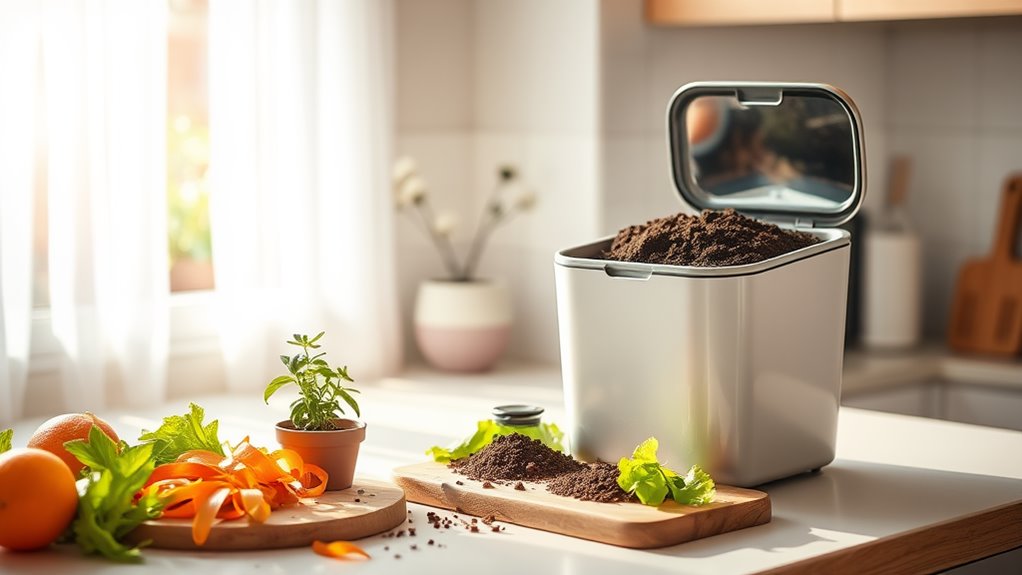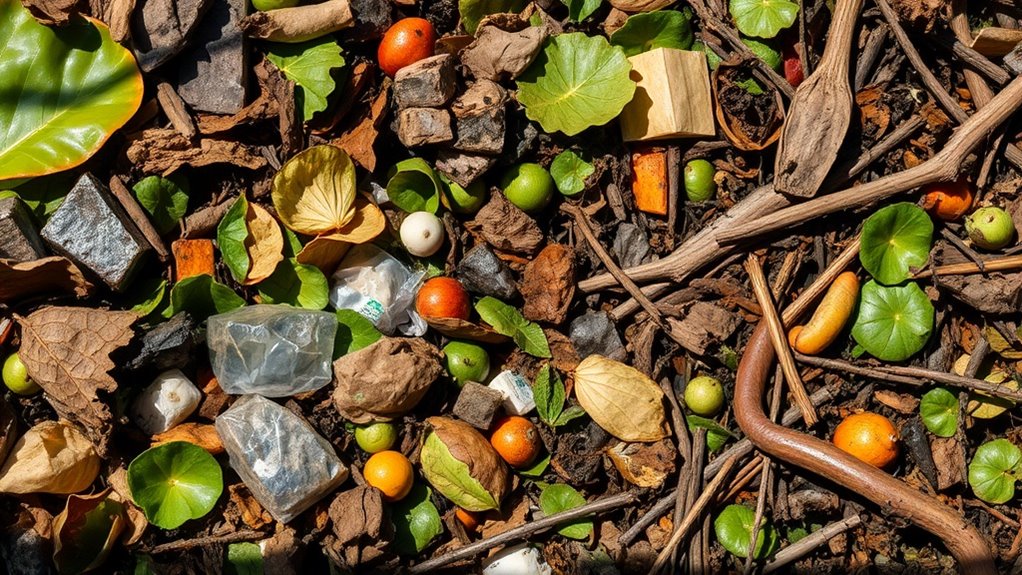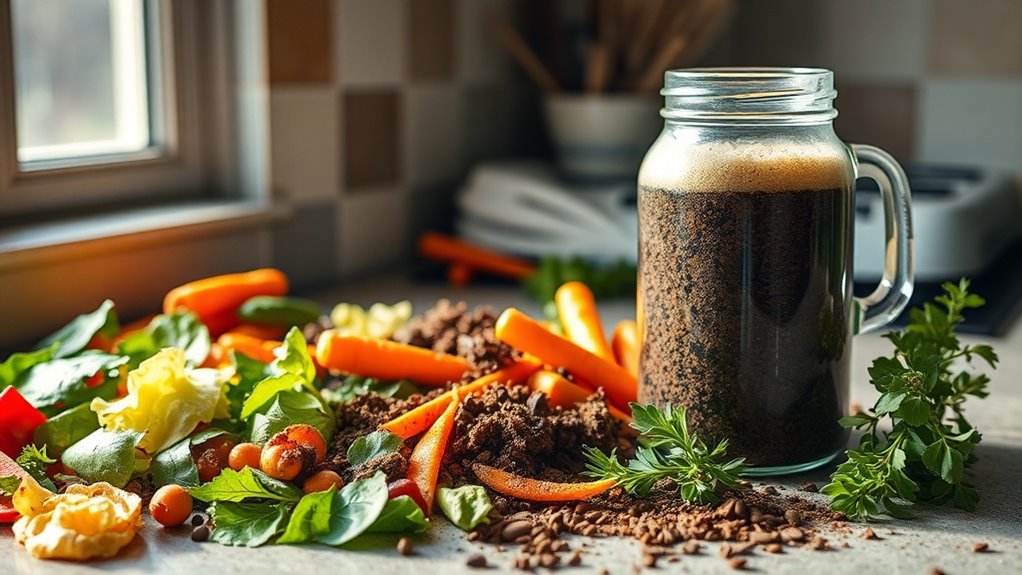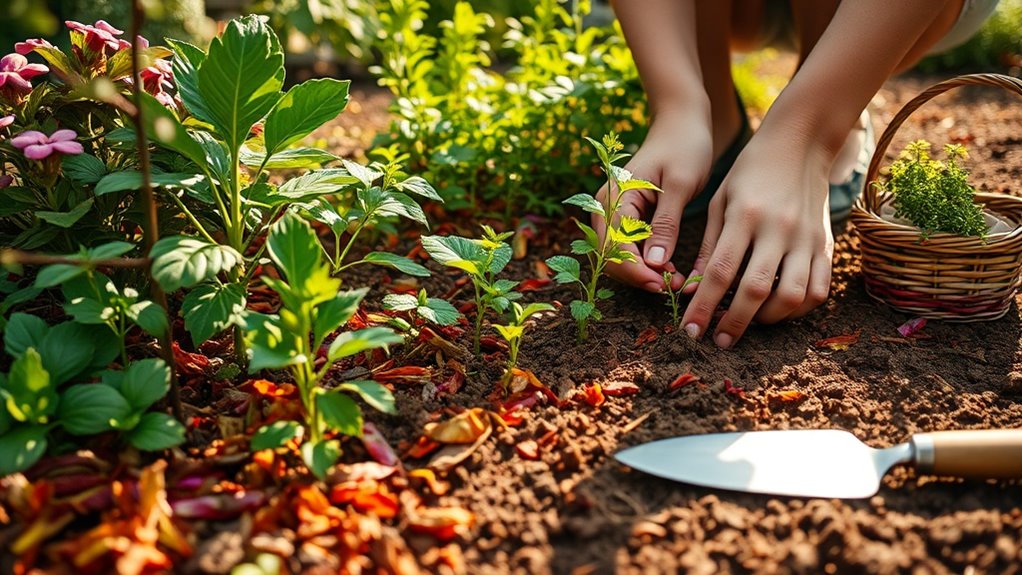How to Start Composting Without a Backyard
You might think composting is only for those with spacious backyards, but that’s not the case. In fact, you can easily start composting right in your kitchen or apartment. By using methods like Bokashi or worm bins, you can turn kitchen scraps into nutrient-rich soil without needing much space. Interested in learning how to make this eco-friendly practice work for you? Let’s explore the best methods and tips for successful indoor composting.
Key Takeaways
- Use a compact composting method like Bokashi or a worm bin that fits under your sink or on your countertop.
- Collect kitchen scraps such as fruit peels, vegetable trimmings, and coffee grounds to start your compost.
- Balance your compost with dry materials like shredded paper or cardboard to maintain health and minimize odors.
- Turn or mix your compost regularly to aerate it and speed up the decomposition process.
- Monitor moisture levels; keep the compost damp like a sponge and adjust with water or dry materials as needed.
Understanding the Basics of Composting
Composting is a natural process that transforms organic waste into nutrient-rich soil, and you don’t need a backyard to get started. Understanding the basics of composting without a yard is essential for urban dwellers. You can use kitchen scraps like fruit peels, vegetable trimmings, and coffee grounds. Mix these with dry materials like shredded paper or cardboard. Keep the pile moist and turn it regularly to speed up decomposition. Using a compost bin or even a large container helps contain the materials and odors. Creating a composting system in urban spaces allows you to maximize your available resources. With a little effort, you’ll create rich compost to nourish your plants, even in limited spaces.
Choosing the Right Composting Method
Now that you’ve grasped the basics of composting, it’s time to figure out which method suits your living situation best.
If you live in an apartment, consider bokashi composting, which ferments kitchen scraps and takes up minimal space.
For those with a bit more room, countertop compost bins or worm bins (vermicomposting) are excellent options.
They’re odorless and efficient, turning waste into nutrient-rich compost. This method is particularly effective for maintaining odor-free composting while recycling organic waste.
Don’t forget about electric composters for a quick, hassle-free solution.
Evaluate your space, commitment level, and the types of materials you have, then choose a method that fits seamlessly into your lifestyle.
Happy composting!
Utilizing Indoor Composting Solutions
How can you make the most of your indoor space for composting?
With the right solutions, you can effectively compost without a backyard.
Here are three options to consider:
- Worm Composting: Use a worm bin to convert kitchen scraps into nutrient-rich compost quickly. It’s compact and odorless if managed properly.
- Bokashi Method: This anaerobic process ferments your food waste, allowing you to compost even meat and dairy.
- Countertop Composters: Small, electric composters can turn food waste into compost in hours, perfect for limited spaces.
Additionally, choosing the right method can help you avoid unpleasant odors that might deter you from composting.
Choose the method that fits your lifestyle and space best!
Managing Your Compost in Limited Spaces
Wondering how to keep your compost manageable when space is tight?
Start by choosing a compact composting bin, like a worm bin or a Bokashi system, which can fit under your sink or on a countertop. Additionally, consider building a compact compost bin, which can easily fit into any corner of your home or garden. Next, balance your greens and browns; this helps minimize odors and keeps your compost healthy.
Regularly turn or mix your compost to speed up decomposition.
Use smaller pieces to maximize space and efficiency—chop up scraps before adding them.
Finally, monitor moisture levels; if it gets too wet, add dry materials like shredded paper to absorb excess moisture.
Your compact compost can thrive with careful management!
Tips for Maintaining a Successful Compost System
Keeping your compost manageable in limited spaces sets the foundation for a successful system.
Follow these tips to maintain a thriving compost:
-
Balance Greens and Browns: Aim for a mix of nitrogen-rich greens (like fruit scraps) and carbon-rich browns (like shredded paper) to promote decomposition.
-
Aerate Regularly: Turn your compost every few weeks. This introduces oxygen, speeding up the breakdown process and preventing odors. To accelerate compost decomposition, consider using a compost aerator or turning your pile more frequently.
-
Monitor Moisture Levels: Your compost should feel like a damp sponge. If it’s too dry, add water; if it’s too wet, mix in more browns.
With these practices, you’ll keep your compost healthy and productive!





